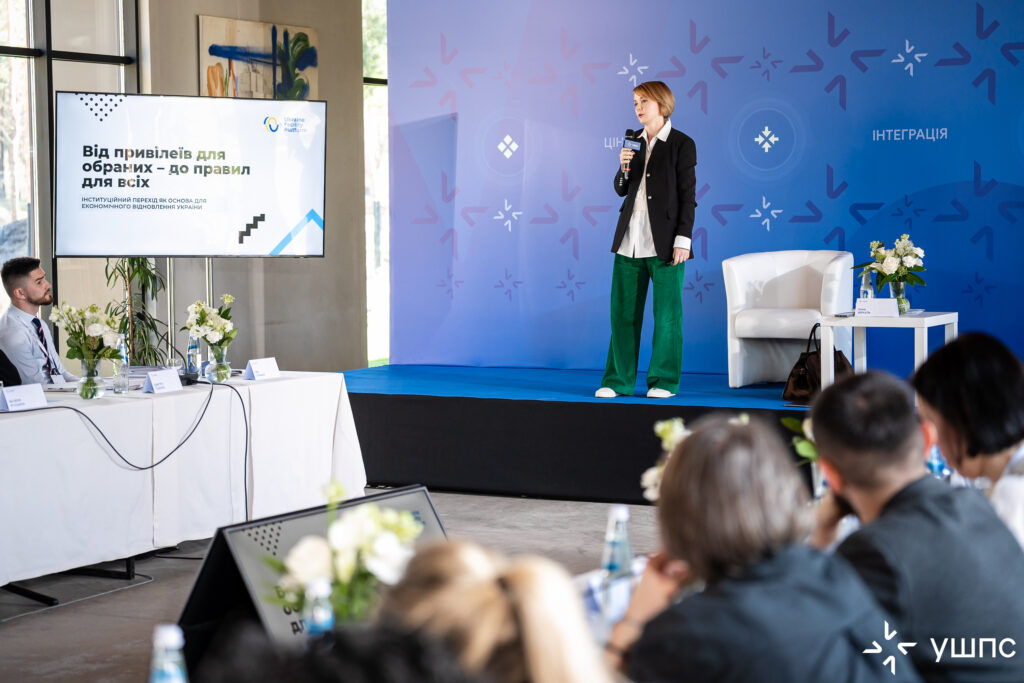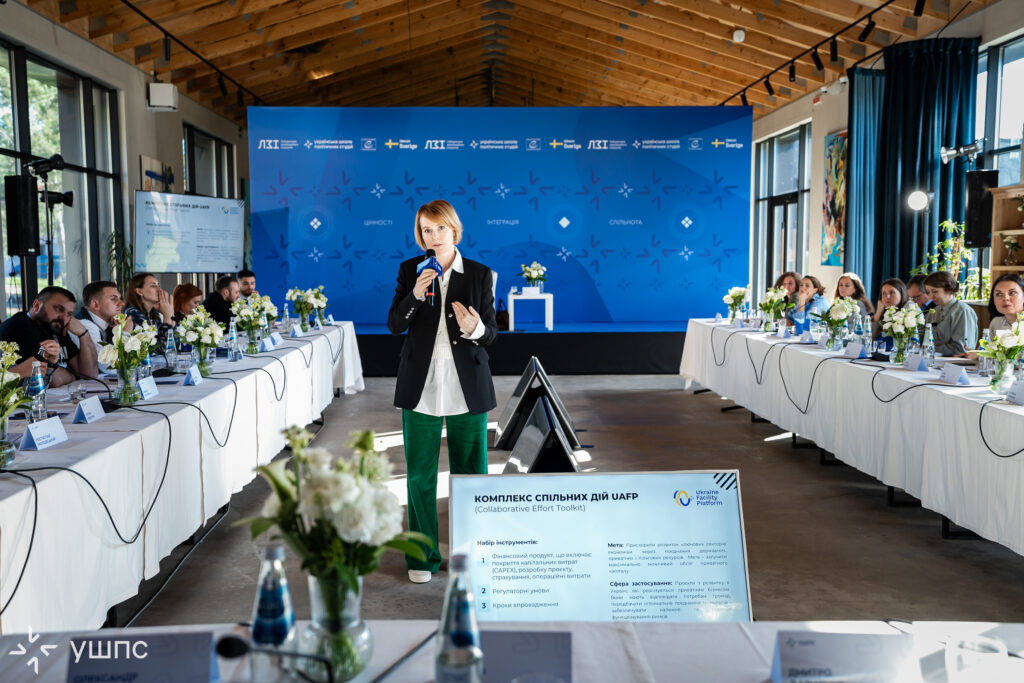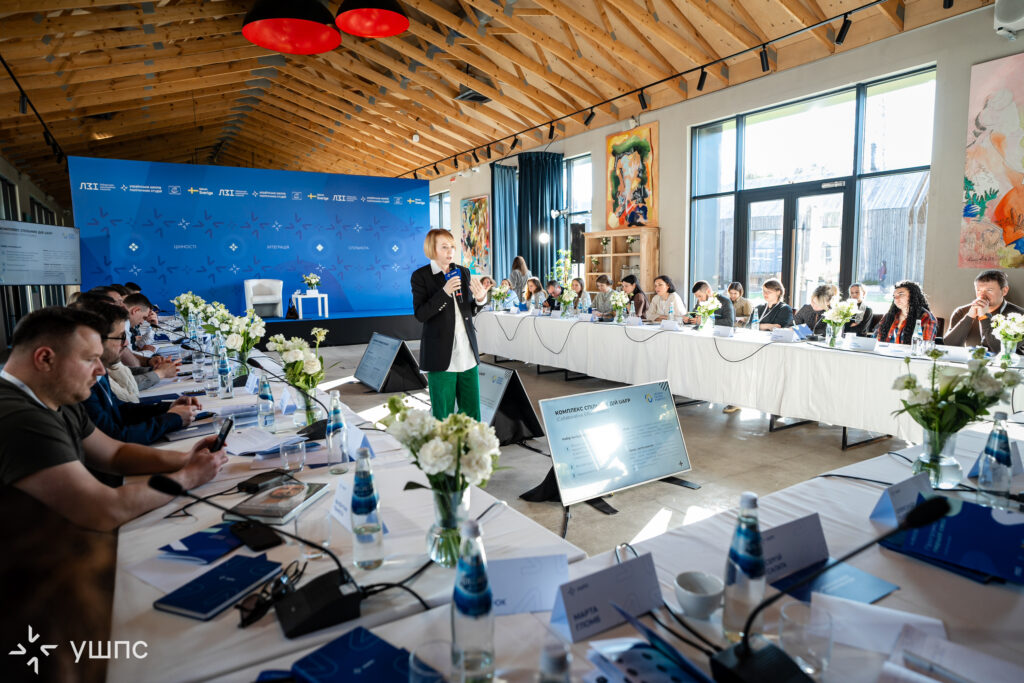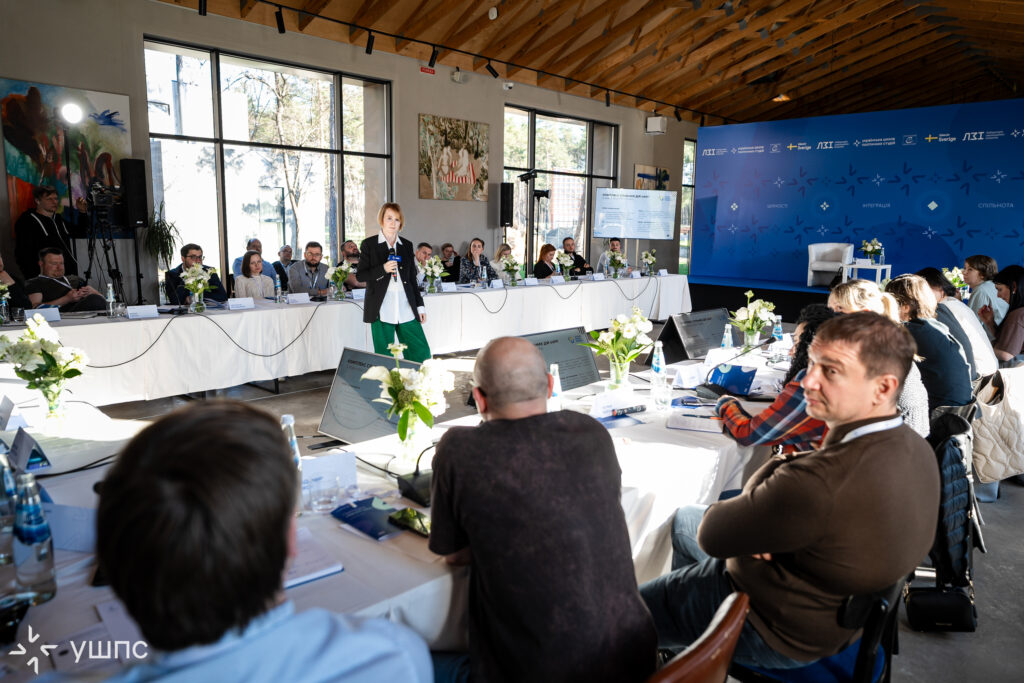From privileges for the elite to rules for all: Institutional shift as a basis for Ukraine’s economic recovery – lecture by Lana Zerkal at the Ukrainian School of Political Studies 2025
UAFP Events
Why do some countries achieve sustained development while others stagnate? And what can Ukraine do to join the ranks of the first?
Lana Zerkal, member of the Coordination Council of the Ukraine Facility Platform, addressed these questions in her recent lecture at the Ukrainian School of Political Studies. Her session focused on the essential roles of institutions, trust, and cultural values in driving long-term development. Here are some of the key takeaways.
Despite having a vast body of legislation, Ukraine remains heavily centralized – 80% of the energy and banking sectors are still under state ownership. Institutions exist on paper, lacking public trust. People tend to trust the Armed Forces, their families, and, to some extent, the Church – and that’s a problem. Trust is the foundation for economic growth.
For institutions to become inclusive, the culture must shift – and cultural change doesn’t happen in a year or two. It’s a generational process. Countries that have successfully transformed did so by planning decades ahead. Ukraine, meanwhile, is still stuck in the mindset of “just make it through the night”. This needs to change.
We still live in the shadow of collectivism inherited from the Soviet Union, with deep-rooted expectations that the state will provide everything. At the same time, we stand on the threshold of a civilizational shift. Political scientist and philosopher Samuel Huntington once described Ukraine as a place where the clash of civilizations will play out this century. Culturally, we are moving toward individualism – and it is the values of individualism (democracy, freedom, entrepreneurship, modernization) that can help us move forward.
Understanding that we are in control of our own lives – not the state – remains a challenge for Ukrainian society. The decentralization reform, which transfers more authority from the central government to local communities, offers opportunities for growth. But this only works when the rules are transparent and applied equally to both citizens and elites.
The most dangerous scenario is getting stuck in transition. That’s what happened in 2013: reforms were underway, but power remained in the hands of those controlling extractive institutions. This only raised the cost of institutional weakness during a critical period of change.
Paradoxically, the war has created conditions for transformation through investment. Under the right circumstances, Ukraine could attract between $170 and $460 billion. But investors will not come unless there is legal certainty, a fair judiciary, and a level playing field. These are the three essential pillars.
🔎 What do value surveys reveal about Ukrainian society?
✔️ Government accountability and care are among the weakest links.
✔️ Values like solidarity, shared purpose, and social pluralism are already present – and can serve as a foundation for transformation.
✔️ Effective local governance and community participation are crucial tools for building shared values and driving reforms.
What needs to change – and how?
🔹 A cultural audit: we need to identify how to reframe our cultural codes to ensure institutions begin to function differently.
🔹 Independent institutions – such as the judiciary and civil services – must serve the state, not vested interests.
🔹 Anti-corruption mechanisms must be tailored to Ukrainian realities, not just copied from foreign experience.





